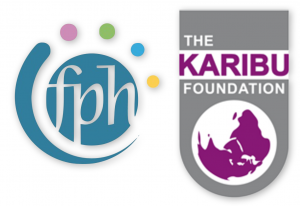 Foundations trying to change capitalism are facing a paradox, as they are themselves part of the capitalist economy, said Matthieu Calame (director of the French-Swiss Fondation Charles Léopold Mayer pour le Progrès de l’Homme) in the latest #EDGEtalk on Ethical investment “How to change from conventional to ethical investments: Practical examples from foundations“, taking place on 9 May 2016. He underlined that transparency is essential in order to move towards ethical investments. This required a profound screening of all holdings, in particular when it comes to investment funds or conglomerates, where the final beneficiary of the money flow is not obvious, Calame said. Hence, after an in-depth study of its investments, Charles Léopold Mayer Foundation decided to privilege direct investments over bundled funds, for the sake of transparency and control over the investments. Ideally, investments should be “transformative“, rather than “immoral” (such as arms or tobacco companies), “illegal” (considering that many big banks like Swiss UBS or other financial service providers are involved in illegal activities linked to the shadow economy) or supportive of the “old fashioned economy” (such as extractive industries), Calame said. However, he emphasised that “if we want to be more ethical we have to reduce our income expectations“.
Foundations trying to change capitalism are facing a paradox, as they are themselves part of the capitalist economy, said Matthieu Calame (director of the French-Swiss Fondation Charles Léopold Mayer pour le Progrès de l’Homme) in the latest #EDGEtalk on Ethical investment “How to change from conventional to ethical investments: Practical examples from foundations“, taking place on 9 May 2016. He underlined that transparency is essential in order to move towards ethical investments. This required a profound screening of all holdings, in particular when it comes to investment funds or conglomerates, where the final beneficiary of the money flow is not obvious, Calame said. Hence, after an in-depth study of its investments, Charles Léopold Mayer Foundation decided to privilege direct investments over bundled funds, for the sake of transparency and control over the investments. Ideally, investments should be “transformative“, rather than “immoral” (such as arms or tobacco companies), “illegal” (considering that many big banks like Swiss UBS or other financial service providers are involved in illegal activities linked to the shadow economy) or supportive of the “old fashioned economy” (such as extractive industries), Calame said. However, he emphasised that “if we want to be more ethical we have to reduce our income expectations“.
Eilert Lund Rostrup from the Norwegian Karibu Foundation, also in a process of moving to ethical management of assets, underlined the need for “coherence between grants given out and how we accumulate the funds we are distributing“. He said that Karibu was moving from a “negative screening” of investments, i.e. excluding certain types of investments based on negative criteria, to positive criteria, considering the political battles and positions of partners and grantees. He gave the example of having shares with Caterpillar, which was inconsistent with Palestinian partners of the foundation supporting the BDS movement (boycotts, divestment and sanctions) against Israel. However, moving out of fossil fuels proved to be a difficult exercise in Norway – an economy highly dependent on extractive industries, where “no fossil free equity funds exist“. Nevertheless, Karibu plans to completely divest from fossil fuels by 2018.
Matthias Fielder, who moderated the discussion, underlined the importance of internal work to bring finance people and board members on board, as illustrated in the discussed examples. He suggested that sometimes companies can move their practices when investors engage and share their concerns. However, “engagement needs power, and small foundations cannot exercise a lot of pressure alone” – thus the need to build alliances and pressure groups.
How social change foundations can support each other, and what can be done concretely to align investment policies with the vision and mission of philanthropy will be deepened in the next #EDGEtalk “On the road to ethical investment: deepening the discussion – exploring needs, challenges and possible solutions to get going“, which will take place on 13 June 2016, 15h to 16h CEST (Brussels time).
You can watch the recording of the third Ethical investment #EDGEtalk below.
Matthieu Calame’s and Eilert Lund Rostrup’s presentations are available here.
EDGEtalk: How to change from conventional to ethical investments – practical examples from foundations from EDGE Funders Alliance on Vimeo.
